Israel’s top ten water technology companies
A serious lack of potable water has forced Israel to create a flourishing water technology industry. ISRAEL21c brings you the country's top 10 water companies.
It makes you think of the famous line from Samuel Taylor Coleridge’s The Rime of the Ancient Mariner, "Water, water everywhere, nor any drop to drink." – Israel is bordered by the Red Sea and the Mediterranean Sea; is home to the freshwater Sea of Galilee and the saltiest sea on earth, the Dead Sea. Rivers and springs run through the country.
And yet, despite all this water, Israel has been battling a severe shortage of potable water since its inception in 1948. To survive, policy and government incentives have contributed to the creation of a new and flourishing industry of water technologies.
From drip irrigation, to water recycling, reclamation, wastewater reuse and desalination, Israel has become a pioneering force worldwide, nicknamed by some as the ‘Silicon Valley’ of water technologies. As more and more countries around the world face similar water shortages, Israel’s expertise and industry are growing fast.
While young companies like Aqwise, which treats wastewater, and Atlantium, which uses ultraviolet to clean water, enhance Israel’s impressive water reputation and are on investors’ hit lists, ISRAEL21c brings you a list of the companies that form the backbone of the country’s water industry – tried, tested and true, these companies are the source of the local water technology industry’s claim to fame and were responsible for a large chunk of the country’s $1.4 billion in exports in 2008.
1. Mekorot Group
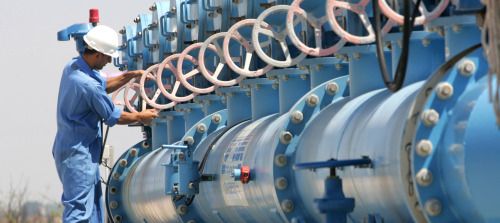
Mekorot, Israel’s national water company, is responsible for today’s thriving water export market. It is wholly owned by the government and for the past 70 years has managed the country’s environmental and security challenges in the area of water.
A powerhouse in desalination, water reclamation, water project engineering, cloud seeding, water safety and water quality, Mekorot supplies 90 percent of Israel’s drinking water and manages about 80% of its water supplies. Its subsidiary EMS Mekorot Projects supplies solutions in water works planning, installation, testing, sewage treatment, desalination, rain enhancement and more.
Mekorot’s second subsidiary Mekorot Development and Enterprise offers water solutions in design, feasibility studies, project management, and construction, operation and maintenance of treatment facilities. It recently signed an MOU agreement with a company in California and plans to provide desalination solutions for southern California.
2. Netafim

When every drop counts, why not deliver water straight to the roots where the water is needed; nothing more and nothing less? Israeli company Netafim invented drip irrigation – possibly one of the most significant developments in agrotechnology today – when an engineer discovered that an abnormally large tree growing in the desert was fed by a drip in a water pipe.
The company is a global leader in drip irrigation, supplying both low and high tech solutions in developed and developing nations. The company is also looking to new sustainable solutions to help to grow biofuel crops more efficiently.
3. Arad Group
If you live in the US or Canada, there’s a good chance that your water meter was made by Arad Group. The kibbutz-owned company specializes in the design, development and manufacture of precision water meters for domestic use, waterworks, irrigation and water management companies around the world.
The company just purchased a Spanish water meter company for about $10 million, and it recently developed a new drone plane aims to pinpoint water leaks on the ground from up in the sky.
4. IDE Technologies
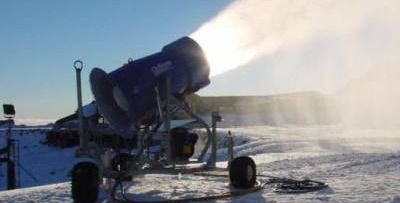
IDE is the company that makes Israel a world leader in desalination technology, having built some 400 desalination plants around the world. It runs one of the world’s largest desalination facilities off Israel’s coast in the town of Ashkelon, and also at Hadera. Recently, the company also won a tender to build and operate a new desalination plant in Soreq, which will be the largest of its kind in the world.
The industrial company has been in business since 1965 when it was founded by the government. Today it specializes in more than desalination, also working with wastewater treatment, heat pumps and in producing ice and snow machines. IDE is now privately owned by Israel Chemical and the Delek Group.
5. Tahal Consulting Engineers
Israel’s largest firm of water engineering consultants, Tahal Consulting Engineers is ranked as the top of its kind in the world. In the business since 1961, Tahal runs projects with private and municipal clients both locally and abroad.
The company maintains close ties with leading international institutions including the World Bank, the Inter-American Development Bank and United Nations agencies. Tahal specializes in water resource management, agricultural development, sewage and sanitation, environmental protection, roads and highways, marine engineering, industrial parks and more.
6. Amiad Filtration Systems
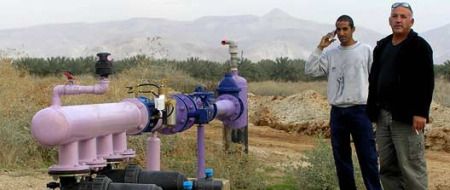
A company that specializes in drinking water filtration, Amiad Filtration Systems prides itself on using no chemicals and no polymers in an efficient process.
Founded in 1962, the company maintains a North American office in California and provides environmentally sound water filtration technologies on every continent from Antarctica to Australia. It also provides special solutions for offshore installations and the automotive industry.
7. Bermad

Bermad specializes in pipes, valves and how to control them. Serving its customers globally, the company offers a number of solutions for the control and management of water supplies anywhere, based on its control-valve technology.
Working in high-rise buildings, water works plants in municipalities, at power stations and in the private sector, Bermad’s impressive range of activity includes drip irrigation technology, sprinklers, micro-jets and greenhouse irrigation, as well as tools for commercial and residential gardening irrigation needs. The company also applies itself to fire protection and water metering and was instrumental in creating snow for the 2006 Winter Olympics.
8. Arkal
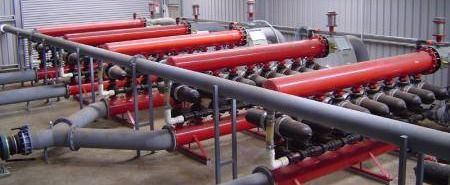
Efficient cleaning and filtering of water is the name of the game in water management and Arkal is fast becoming a world leader in the field, working with countries like Argentina, Turkey and Spain.
The company is active in plastics plants and in aquaculture and fisheries industries, and is providing sprinkler solutions to increase the effectiveness of irrigation.
9. Global Environmental Solutions (GES)
GES designs water and wastewater plants and can also build and operate them in industrial areas, in cities and for agriculture.
GES was created by a merger of three veteran Israeli water companies: Italchem Ayalon, Aniam, and Chemitaas. The company acquired Texma, a firm specializing in industrial adhesives, lubricants and chemicals for treating metals and Argad, a wastewater treatment company.
The super-company GES offers a full repertoire of water solutions for chemical companies, factories and municipalities and specializes in the food, beverage and hospitality industries.
10. Miya
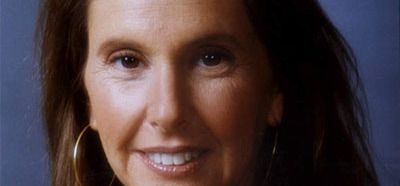
While it has yet to prove itself, Miya is an ambitious business venture founded by Israeli billionaire Shari Arison.
The $100 million initiative, which was set up in 2006, aims to tackle the problem of urban water loss around the world. Miya is acquiring a base of companies and consultants to offer turnkey solutions, services and consulting to manage and fix leaky pipes and save billions of dollars annually.
More on Earth
Coriolis scales up for the wind
An alternative energy company, Israel’s Coriolis is targeting the $40 billion medium-scale wind solution market, with smaller turbines that take up less room, are cheaper, and can grow with customer needs.
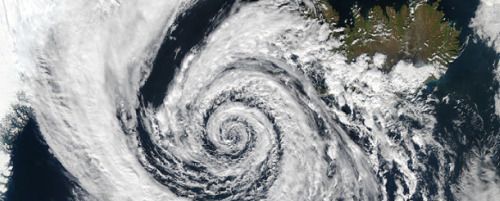
When we think of wind turbines, we tend to picture the standard massive turbine fans the size of airplane wings. While they’re an important carbon-free component to supplying countries with renewable energy solutions, there are those – including environmentalists – who find the massive turbines unsightly and somewhat controversial. Sometimes, new roads have to be laid to secure the mega-blades into the ground near windy shores. And the unsightly wind stations devalue property and real estate.
Meanwhile, an Israeli company is proving that there’s more than one way to catch the wind. Looking to the French mathematician, Gaspard Gustave de Coriolis, the team at the company that bears his name has developed a medium-sized scalable wind technology that can grow with one’s energy needs, investment potential and the changing winds of time.
Based on a single unit that rotates three blades vertically, like a barber’s pole, Coriolis Wind’s solution is scalable – each unit of 50 kilowatts can be stacked together with others to generate as much as one megawatt of power, enough energy to run an industrial park. The product is currently in the prototype stage.
With a name derived from the Coriolis effect – the deflective effect of the earth’s rotation on all free-moving objects, including oceans, the atmosphere and wind – the company’s solution lies in extremely lightweight vertical turbine blades, each only about six and a half feet long. Developed from a lightweight plastic material, the molded turbines are linked together in a "pod" of three, to form a module. Modules can be connected together to scale, as more power is needed.
Tapping into a $40 billion market
Coriolis sees itself as ultimately offering a new paradigm to tap into the medium-scale wind power solutions market, estimated at about $40 billion. Its approach is to move away from the massive blades and over to small- to medium-sized units that have less effect on the environment and their surroundings.
"You know it’s very subjective," Coriolis CEO Rafi Gidron tells ISRAEL21c. "We believe that the environmental impact of our system is not as disturbing as the big turbines.
"Ours is designed for a distributed wind environment in industrial parks, commercial parks and small communities in the wind environment," he explains. With Coriolis, you won’t see "big wind farms with dozens of turbines, but a smaller installation," he adds.
Coriolis is focusing on the niche where the big wind turbines are not the appropriate solution. The company can reduce the overhead costs incurred by cranes, and doesn’t require any special type of delivery transport for installation like the larger turbine fans do.
"Our system is designed so it doesn’t require training, it can easily be maintained and can be transported by small standard trucks," he says, stressing that the units’ prices will be competitive with the industry standards.
Born in a cowshed
Some companies, Gidron continues, will be able to park the system behind the electricity meter and sell the power back to the grid at retail prices. At other locations the units can be tailored to meet the energy needs at any given time, and can scale up as a company or factory grows. And theoretically, the turbines can also be moved if wind intensity should change or if a company relocates.
The company of 13, founded in 2008, has an ambitious plan to be a leader in wind energy, supplying power to large buildings, schools and industrial parks all over the world.
The company’s pilot site is located at the Israeli agricultural village of Kfar Yarok, where its office and test lab are housed inside a cowshed. "That’s where the sh** literally hits the fan," says Gidron (pun intended).
With a $10 million investment Coriolis will build its beta site in the US, along with a strategic partner – a major American energy company that has not yet been named. The site is expected to be ready by 2011.
Coriolis was founded by Precede, a group of four entrepreneurs who also founded the Pythagoras and Solar Power solar energy companies. All the founders now hold full-time positions at Coriolis and offer their support as board members to the other two companies since launched.











